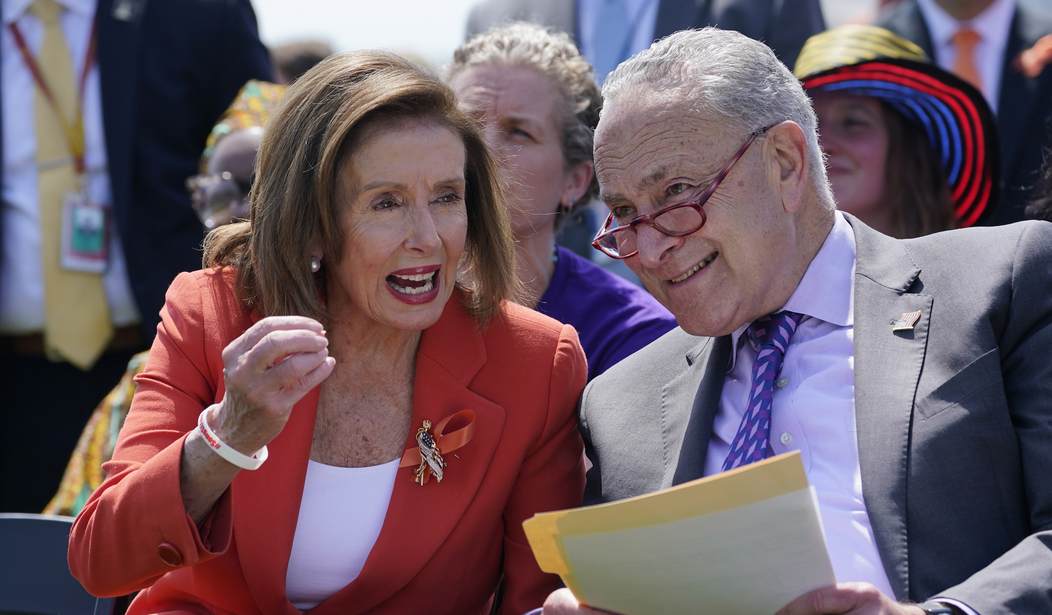We're in the dog days of summer, with an election a little over three months away. The conventional wisdom is that a red wave is brewing in November and that the proverbial cake is baked among the electorate. Historical trends, plus the president's abysmal approval ratings, plus rampant inflation and recession fears, plus the atrocious right track/wrong track numbers – all playing out with Democrats holding unified control of Washington – should add up to a big Republican cycle. I still believe that will be the case. The so-called fundamentals are historically terrible for the ruling party, and they're going to lose. But how badly will they lose? A 2010 or 2014-style wipeout could certainly be in the cards, especially if Democratic frustrations and demoralization result in diminished turnout among their base. The party in power has seen a resurgence in voter intensity in recent weeks, which is a hopeful sign for them, in terms of possibly mitigating the damage. But some other data points suggest the GOP will command that advantage:
Marquette Poll: "The July results show that Republicans have increased their advantage over Democrats in enthusiasm and projected turnout"
— InteractivePolls (@IAPolls2022) July 21, 2022
"The Enthusiasm gap between the parties is a substantial 18-percentage-point Republican advantage"https://t.co/vjIfEE0CsT
If Republicans win the enthusiasm battle and independents and undecideds break their way, that's how the bottom falls out for Democrats. But there's been some (mixed) evidence that President Biden's party has gained on the 2022 generic ballot, taking modest leads in a few polls, while still tied or trailing in others. Generally, a small edge for Democrats on this metric is pretty good news for Republicans. Anything redder – like ties or GOP leads – foretell serious pain for Team Blue. This new survey (commissioned by AARP, conducted by well-known pollsters) in dozens of battleground districts suggests that Republicans definitely have an upper hand:
NEW AARP poll by Fabrizio/Anzalone of the 56 most competitive House districts:
— Josh Kraushaar (@JoshKraushaar) July 21, 2022
R+4 on the generic ballot
Dems with just 5-point lead among Hispanics; 3 point lead with Asian-Americans
Biden 37/61 approval
Trump 50/49 (!) approval
Pelosi: 32/61 favhttps://t.co/tFDCzHwUUH
These districts, on average, voted for Biden by six points two years ago. This is also an insightful analysis of a recent New York Times poll showing Republicans up by a single point on the generic ballot:
Missed this when it dropped, but interesting @Nate_Cohn point on 538 pod re: NYT/Siena GB figures, esp as it relates to the sizable pool of undecideds. >3x as much slack among non-college whites as BA+ whites, who are nearly maxed out. (Also noted Biden @ 23% w/ undecideds.) pic.twitter.com/0NSdfz7v7I
— Liam Donovan (@LPDonovan) July 21, 2022
Recommended
A significant chunk of undecideds is white voters without a college degree. Those are heavily Republican-leaners these days. And among the undecideds overall, they're overwhelmingly Biden disapprovers. How are they likely to break? I do think it's a cinch that Democrats will outperform Biden's approval rating (perhaps significantly) in vote share, partially because quite a few people who give the president low marks are dyed-in-the-wool Democrats who will nevertheless turn out and vote against Republicans. But can Democrats really survive a political climate that looks anything like this?
?? CD Media / @BigDataPoll ARIZONA
— InteractivePolls (@IAPolls2022) July 22, 2022
Biden Job Approval:
Approve 36%
Disapprove 62%
Hispanics:
Approve 39%
Disapprove 59%
N=1,298 LV / 07/16-18 /+/- 2.7%https://t.co/Vi1i3Osbig
We shall see. Democrats have a massive general fundraising advantage, as the party of big money in politics. Sen. Rick Scott, the NRSC chairman, told me bluntly this week that campaigns need to step up their fundraising game. And some nominees of dubious quality could haunt Republicans in some critical statewide races. The GOP left eminently winnable seats on the field in previous cycles, including very red-tinted ones. What I'm pondering is whether this year will ultimately look more like 2010 and 2014 – historic wallopings – or closer to a reverse 2018, in which Republicans win back the House by a decent margin and make other gains, but the Senate races bucked the trend (which eventually allowed the confirmation of Amy Coney Barrett). I'll leave you with this, which riffs on a piece I wrote earlier in the week:

























Join the conversation as a VIP Member